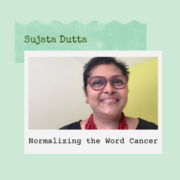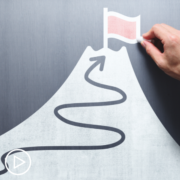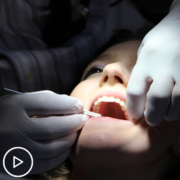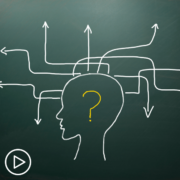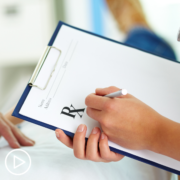Sujata Dutta: Normalizing the Word Cancer
Sujata Dutta, Part 1: Normalizing the Word Cancer from Patient Empowerment Network on Vimeo.
Empowered myeloma patient, Sujata Dutta, shares her diagnosis story and shares her top advice for newly diagnosed myeloma patients.
Transcript
Hi, my name is Sujata Dutta and I was diagnosed with multiple myeloma in December of 2019. This is my story. I’m hoping that I can encourage other people to educate themselves about the disease, to be okay with the disease, and to learn a little bit from my story – if it is possible.
My journey started in December of 2019. It started off as a regular day just after Thanksgiving. Me and my husband we were at work, we had a typical normal day at work, and we got back home, and then we had to run some errands. So, we went off.
I had a very severe tummy ache. It was so bad that I had to just hold on to the cart that I had in the store and just stand in the middle of the aisle because I was just not able to move with the pain. As I just told my husband, I don’t think I am feeling well, let’s go back home. And when I got back home, I started feeling very sick and I threw up through the night like I was just throwing up.
So I didn’t go to work the next day, and I just thought maybe it’s a tummy bug like I’ve got an upset tummy, I should just rest it up. So, I didn’t go to work. I didn’t feel sick again, but I started to have diarrhea and I was like well I just have to wait it out until the bug goes away. Then, I had this tummy ache, which was kind of like coming and going and I didn’t know what it was, and I was just like maybe it’s the bug and I just didn’t think much about it. I kind of put up with it for a while.
After a few days, I was just like it’s not going and my tummy still hurts on one side, so I don’t know what’s happening. And that’s how I went to urgent care. And then, they took x-rays and labs. And they said something is really not looking nice, but you have a massive swelling in your belly and your labs are not looking good. Long story short, it looks like you have an infection and inflammation in your abdomen. You need to go to emergency.
And this was my first time in a hospital. I had moved to the US only six years ago. Before that, i was in the UK. So, I had no clue how things worked and we were just following suit. My husband was with me, so I said well they’re asking me to go to emergency because they said that I need some imaging done. We were really casual about it, and we were like well ok, fine let’s go and see what happens. We just sat around in emergency for so long, and it was time to pick up my boys. So I told my husband you can go and I’ll Uber once my scan is done.
However once my scan was done, after waiting for many hours, the doctor came in and said well you have something called an intussusception. I had no idea what that was. I can pronounce it now, but at the time I was like what? And so basically what had happened was my intestines had got tucked into each other and created a block at several points, and that had to be operated. So I had to stay back. This is my first time in the hospital, I don’t even know what happens or whatever.
So anyways I stayed back, had surgery. […] inches of my big intestine had to be taken away because it was damaged. And then started the research, why did this happen to me? And we did lots of tests once I was recovering from surgery in the hospital. One of them was a bone marrow biopsy, the other was another MRI. And finally, a week after the surgery, I was visited by the oncologist and she said, “Well, you have something called multiple myeloma.” And I was like, What’s that? She was like, “It’s a cancer of the bone marrow.” And I was like “Oh, ok.” I had no clue how to even react to that, you know? And so that’s how I was diagnosed.
I had lymph nodes that were swollen, so the belly ache that was happening and the uncomfortable feeling that I had in my belly was because my lymph nodes were swollen so much so that they had actually pushed my intestine and it had no space, so the intussusception. And when we did the MRIs, we realized there were lots of lesions from my skull to my, you know, all along my spine. We realized some other ones later as well.
But, you know, that’s how I found out that I had cancer. Fun story is like I’m the first one in my family to have cancer. So, I had no clue what to do or what to expect. It was just like wow I have cancer, what am I supposed to do? And so I think, for me, it was very natural to educate myself about it because actually I did not know what multiple myeloma was. So, it started off from there like What does multiple myeloma mean? What kind of cancer is this? What are the types of treatments there are? What should I do to prepare myself? Because in my case, because I had surgery, I was asked to just rest up and recover from the surgery. And then, have conversations around treatment plans and like what to do and things like that.
For one month, I was just like at home recovering from the surgery but at the back of my mind I knew that well I have cancer, but that’s it. I don’t know what to do about that information. So I used that time to educate myself about the disease, about what happens with multiple myeloma, and what are the stages. I was told that 60% of my cells were damaged and I was in stage 2, and I had no clue what that meant either. So I spent a lot of time researching about the disease, the type of disease, the cancer, the treatments, and all of that. But of course it was very overwhelming initially because it’s a lot of information to take. Some of it was like it’s too much for me at least, like all of the scientific terms, terminology, and labs, and all that kind of things didn’t make any sense to me at the time. But at least it prepared me to speak to my specialist when I finally did meet one.
I live in Minnesota, so I’m very fortunate to live like just two hours drive from Mayo. So all of my reports were actually sent across to Mayo and like a senior hematologist actually reviewed them and double confirmed that the diagnosis that my doctor had done was indeed correct. So when I went to meet the hematologist, I did have some information about my disease. I had information about like the type of cancer, the stages, and like some questions to ask. So I feel like it’s very, very important to self-educate, not only to empower yourself and to learn more about it so you’re prepared for it, but also to make sure that you ask the right questions. And again, I say right in a very loose way. No question is right or wrong. All questions are important, so just ask those questions. Having that education and learning about your disease really helps you prepare for that, so
I would recommend highly to educate yourself so that you are aware of your own disease and you’re able to ask questions to your doctors or whoever is taking care of you.
I actually got in the habit of writing down my questions, so my phone has questions from 13th of January 2020 to like even now. Whenever I go I have that list of questions because I don’t want to forget something important or I don’t want to leave something because I didn’t have a chance to talk. So I always make a note of the questions that I want to ask before my visit. Things can pop up at any time, so I can get up in the middle of the night and “Oh, I have to ask that question or that’s an important thing that I want to ask.” So, I kind of got in the habit of writing down my questions, and now my doctor knows me so well, she’s like “Ok, what’s your next question with your phone?” So it’s a good habit that I’ve cultivated over a period of time.
I think a lot of website and a lot of information is out there, but it’s important to know what kind of information you want to digest and what kind of information you really want to consume. Because if you type something on Google, there’s a lot of information. It could be opinions, it could be people’s personal stories, it could be good, bad, ugly information. So I think it’s very important to have reliable sources of information, especially when we are undergoing a disease like cancer. So, that is important.
I think Patient Empowerment Network has some amazing resources. I have actually had the opportunity to go through so many pieces of information there. There are blogs, there are information about medication, clinical trials, nutrition – all sorts of things. So, it depends on what you’re looking for and what you want to know, it’s just a click away. I also particularly like that things are broken down by the types of cancers. So if you’re going for the first time, you’d be like what kind of cancer do you have and if you want to really look into just your type of cancer or type of cancer that you’re going through, you can search in that way too. Or if you just want to generally read about other things, that’s fine too. But you have a lot of resources that can help you with the education of your disease, how to manage it, finances, insurance, you know like second opinions, natural therapies – any sort of information. It’s really useful information. I have actually leveraged a lot of that information throughout my journey, so I would highly encourage that others do too.
As far as providing advice to newly diagnosed patients, I would say first off, don’t freak out. It’s just cancer. So don’t freak out, I have normalized the word cancer in my family. Because, obviously I got cancer, it was like “Oh my God, Cancer”. Here it was almost like a swear word. I just normalize it. I was like it’s a disease, it’s a big disease with big consequences, but we have a plan. We have treatment and the biggest thing was that I was going to not let cancer define who I am and what I do, and I live by that. I’m just like I have cancer and that’s ok. We have a treatment plan. I’m going through a treatment plan and hopefully very soon, I will reach remission and then I will just be on that maintenance for the rest of my life. Fingers crossed. But, that’s about it. I have so many other things to do like my job, my kids, my hobbies, I love painting. There are so many other things to do.
The only advice I would give is don’t freak out and talk to your doctor. I think building a relationship with your oncologist or your specialist is also very important. First off, be very comfortable with the person you are working with because that is important. Like I had several opportunities to move to a different cancer center or work with a different oncologist, but I felt like I had built a rapport with a certain doctor and I felt very comfortable with her. So, I decided I wanted to go ahead with treatment with her instead of somebody else who was highly recommended by other doctors or other friends that I knew. So I just feel like it’s very important that you feel comfortable with the person you are dealing with because you are going to be dealing with that person for a very long time. So that’s the other piece of advice I would give to newly diagnosed patients.
I would again underline, do not freak out. There is hope. There is always hope. There is always treatment options. You just have to wait, be patient, and be very, very positive with the whole thing.I was told this many times, and I tell this to others as well, like being positive is super important in life generally, and especially when you have cancer, it’s really important to be positive. Just so that you are, I mean I was also advised that if I am positive that would work better than the medications that I’m getting. So, I have tried to stay positive. I have tried to be upbeat about everything including like I had a bone marrow transplant in June of 2020 and it was quite a challenging procedure. I was positive even when I had like zero platelets in my body and I was like no, this is going to pass. Everything’s going to be fine. Everything is going to be fine and I’m going to get out of this and be able to be with my boys and my family and my friends and be able to party again. So that’s what kept me going. So I would say, please be positive. That will definitely, definitely help you through.
Check out Part II of Sujata’s story: Sharing the Journey

